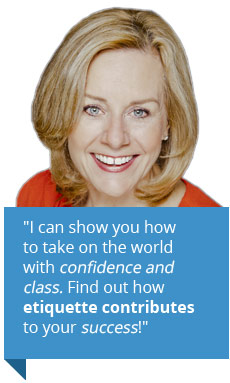Conquering the Critic Within
May 15, 2009– “Non-perfectionist” Isaac Asimov
 In some way or another, we all struggle with currents of negativity that swirl in our minds. But the people who learn to confront it, challenge it and conquer it — those are the people who move ahead more swiftly, easily and joyfully.
In some way or another, we all struggle with currents of negativity that swirl in our minds. But the people who learn to confront it, challenge it and conquer it — those are the people who move ahead more swiftly, easily and joyfully.
This realization really hit home for me when I saw Academy Award-winning actress Geena Davis deliver a speech about her quest to earn a spot on the 2000 Olympic archery team. She told us about the day a world-class archery coach joined her on the field to assess her skills. Her nerves ran high as she took her stance, positioned her bow and arrow and released her first shot. It landed far from the center of the target.
The coach asked, “What were you thinking just now, when you missed?”
Geena responded, “I was thinking I’m an idiot — I missed.”
He instructed her to shoot again. She shot, she missed, and again he asked, “What were you thinking?”
“I can’t believe I missed again! What an idiot! Why am I even doing this? I’m over 40… I’m too old for this!”
He turned and looked her in the eye. “Do you hear what you tell yourself all the time? What if, instead of berating yourself, you said, ‘Ok… the next shot will be even better!'”?
In those few moments, Geena Davis learned to conquer the critical voice within. If only we all had such a coach! Because we all have a critical voice within.
“I look pretty good today!” (If only I didn’t have that belly bulge and those wrinkles around my eyes.) “I think I have a chance at this promotion.” (As long as no one finds out about the mistakes I made.) “I think he’s flirting with me!” (Nah, probably not… what would he see in me?)
For many people, that negative inner chatter becomes so incessant, so insistent, that it actually disrupts their sense of what’s true.
In some cases, the critical voice develops into Imposter Syndrome. First mentioned in a 1978 study of high-achieving women, Imposter Syndrome is a vague sense of anxiety and self-doubt that comes from thinking you’ve “fooled” everyone into thinking you’re better than you “know” yourself to be. By this point, the critical voice has become so convincing that you’re buying everything it says! No matter how much proof there is that you’re successful, smart, capable, beautiful and otherwise wonderful, the critical voice within convinces you otherwise. You feel like a fraud and you’re waiting for the day when someone will find out what you really are.
This mindset is much more common than you might think. It strikes people from all walks of life – teachers, policemen, doctors, etc. — but it is generally associated with high achieving, successful people. (This distinguishes it from low self esteem, where people generally underachieve.)
The critical voice within tends to discount achievement and overemphasize failure, leaving us spinning in a whirlpool of unrealistic standards. For those under the spell of the critical voice, success is often dismissed as luck, timing, coincidence, or the idea they deceived someone. Instead of internalizing success, they feel like a fake.
Can you identify with this tendency, even a little bit? It’s not an all-or-nothing situation. You might feel like an imposter in some situations but not others, or in varying degrees.
Here are a few statements that might sound familiar:
- “I can give the impression that I am more competent than I really am.”
- “I am often afraid that others will discover how much I don’t know.”
- “I just got lucky this time. It was a fluke.”
- “It’s no big deal.”
- “I did well because it was easy.”
Those in the grip of the critical voice also tend to:
- Give people the answers that she believes they want
- Work harder in order to prevent people from discovering she’s an “imposter”
- Feel that praise is based on charm, not ability
- Exhibit perfectionist tendencies
- Have a hard time accepting compliments
If these traits feel uncomfortably familiar, take heart: There are a number of very effective steps you can take to reduce the volume and frequency of your critical voice within. If you consistently challenge it, you’ll begin to feel as sharp and accomplished as everyone else seems to think you are.
As a coach, I recommend:
1) Catch your “critical voice” in action, and instead of letting it breeze through the back of your mind, drag it out in the light and challenge it. “You just said what?” Here’s a little piece from the Dove Real Beauty Campaign that illustrates how this process can unlock some powerful personal realizations.
2) Retrain your brain. If you catch yourself thinking something like, “They’re going to figure out I have no idea what I’m doing,” counter that thought with a positive one: “It’s okay to figure it out as I go along. Everyone goes through this.” Or, like Geena’s archery coach taught, tell yourself, “Next time, I’ll be even better.”
3) Tweak the critical voice to make it humorous. You could speed it up, slow it down, exaggerate it, give it a Mickey Mouse™ voice or even give it a nickname. When you can laugh at it, it won’t have as much influence.
4) Build a “reminder book” of all the compliments that come your way. Build up proof that you are indeed fabulous, so you can remind yourself of that when you feel about as wonderful as old cardboard. Keep it on your desk and paste in e-mails and pictures. Jot down compliments religiously – especially when you don’t feel like it. That’s when they count the most.
5) Escape the trap of perfectionism. While it can indicate a healthy drive to excel, perfectionism usually holds people back. Remember, do a great job when it matters most, and learn to let a few things slide (it’s okay, we all do it).
The most important step is this: Learn to separate feelings from fact. Just because you feel incompetent doesn’t mean you are. Just because you feel unattractive doesn’t mean you are. Remember, thoughts and feelings are temporary!
On that note, I’d like to leave you with some lyrics from one of my favourite songs:
- If I’m afraid it doesn’t mean that I’m not brave
- And if I doubt, it doesn’t mean that I’ve lost faith
- And if I fall, it doesn’t mean I can’t go on
- And if I cry, it doesn’t mean that I’m not strong.
(from “Doesn’t Mean that I’m Not Strong” by Jana Stanfield and Karen Taylor-Good)
 Print This Post
Print This Post
Leave a Reply




No Comments Yet
You can be the first to comment!